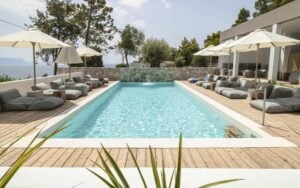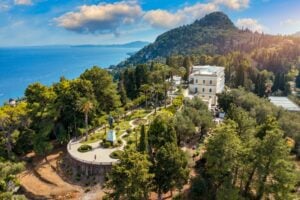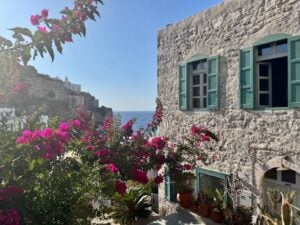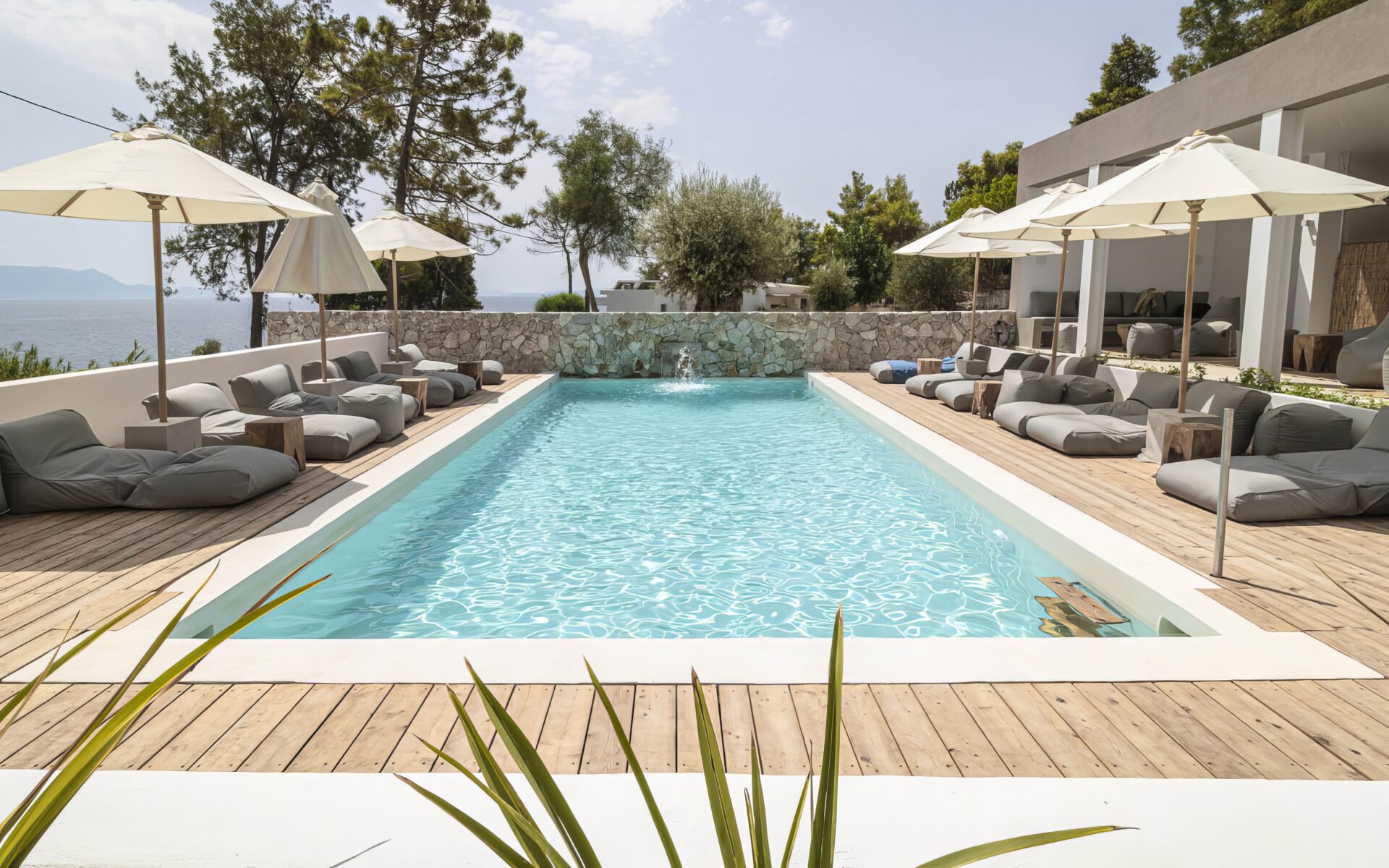The picturesque island of Kalymnos can be found between the islands of Kos and Leros, in the Dodecanese. Visitors come from all over the world to experience its natural beauty, delicious seafood, quaint alleyways, and, naturally, the local sponges.
The port town of Pothia is the capital of the island and is a gathering place for lovers of Greek architecture. It is full of old mansions, captains’ houses, and small one-bedroom townhomes from the 19th century that used to be the dwellings of –you guessed it– the local sponge divers.

Historic Roots
Life in Kalymnos has always been tied to the sponge trade. Even in ancient times, it was known as “the sponge-divers island.” Sponges were a main source of income for the island’s residents, and those who were skilled in the trade made a good living.
In the old-school method, a small boat was taken out with a few crew members. A cylinder with a glass bottom was lowered in order to search the sea floor for sea sponges. The divers had little or no equipment and carried a 15-kilogram weight known as a “skandalopetra” which allowed them to sink quickly to the bottom in search of sea sponges.
In some cases, sponge divers used a harpoon to sponge-fish, at least before it was replaced by modern technology.

The Risks Involved
It would not be uncommon for divers to fall ill with what was known as “diver’s sickness”, which is caused by a change in pressure. Constantly shifting currents and a lack of modern equipment made diving dangerous.
Oftentimes, boats would embark to sea for months at a time. Families would gather together to bid farewell to their relatives in the harbor. Before they left, the priest of the village would hold a service for the blessing of the waters. St. Nicholas, the patron saint of divers, would be prayed to for protection.
Sea Sponges’ Popularity
There are thousands of species of sea sponges, and the following species are the most commonly sold from the Aegean sea:
- Honeycomb sponge
- Matapas sponge
- Vase sponge / Syrian fine sponge
- Elephant ears sponge
- Tsimoucha / leathery sponge
Natural sponges are more valuable than synthetic sponges you can buy in the supermarket because they last longer and are not susceptible to tearing. For bathing, they soak up more water and are not prone to dripping.
In ages past, entrepreneurial traders from Kalymos sold their findings as far abroad as the Middle East, Constantinople, and even Moscow.
Demand for sponges surged during the Industrial Revolution, and thousands flocked from the nearby Dodecanese Islands to be involved with either the diving or the processing of sponges.

Diving Innovations
Techniques for diving have evolved a great deal over the centuries. In 1860, a new innovation was introduced to the diving world, known as the “Skafandro.” This diving suit was fully covered, included a helmet, and allowed the diver to stay at the bottom for much more time. An air pump would manually send air to the diver via a pipe.
Nowadays, technology has advanced further, and divers are able to stay underwater for much longer periods. The Kalymnos State School of Divers offers a professional state diploma and is the only one of its kind in the country.
Can I Still Buy Sea Sponges in Kalymnos Today?
Yes, absolutely! The trade is not as robust as it used to be because a disease wiped out a large portion of the sponge population in the 1980s.
Still, however, there are local divers and workshops along the Pothia coastline. Here, you can witness the traditional process of sponge-making.
Local tourism offices, like the “Kalymnos Experience” offer group and individual diving lessons. Opportunities to dive or get involved in sponge making can be found on the official page of Kalymnos municipality.




































